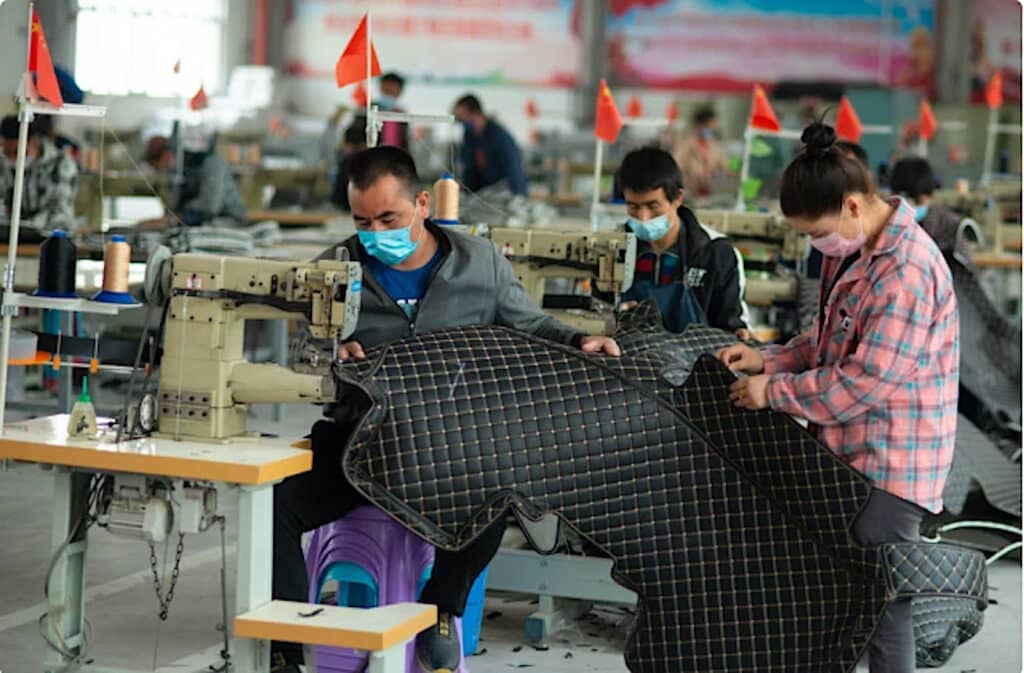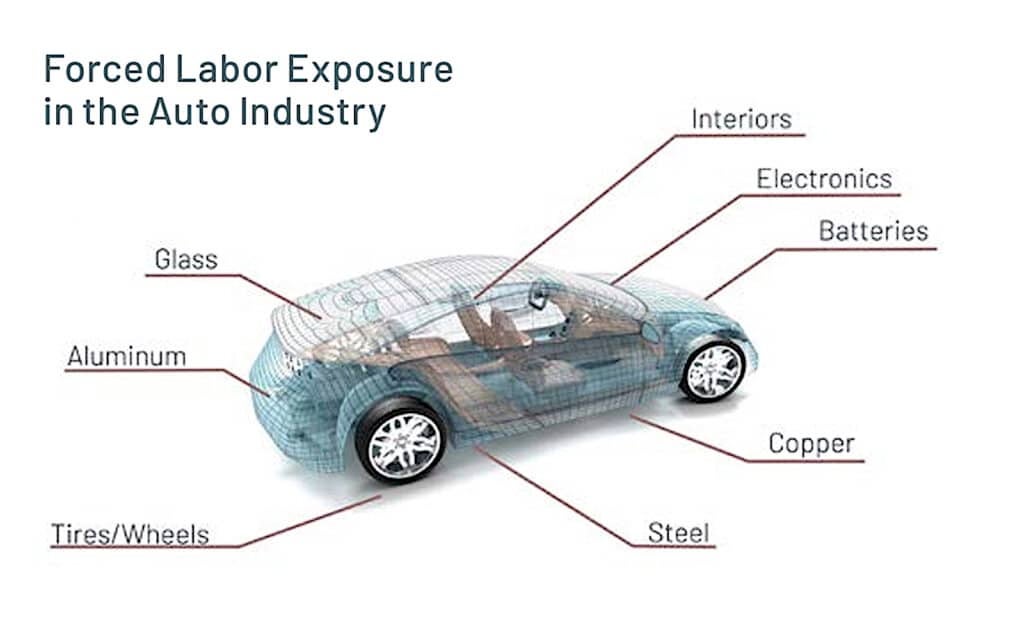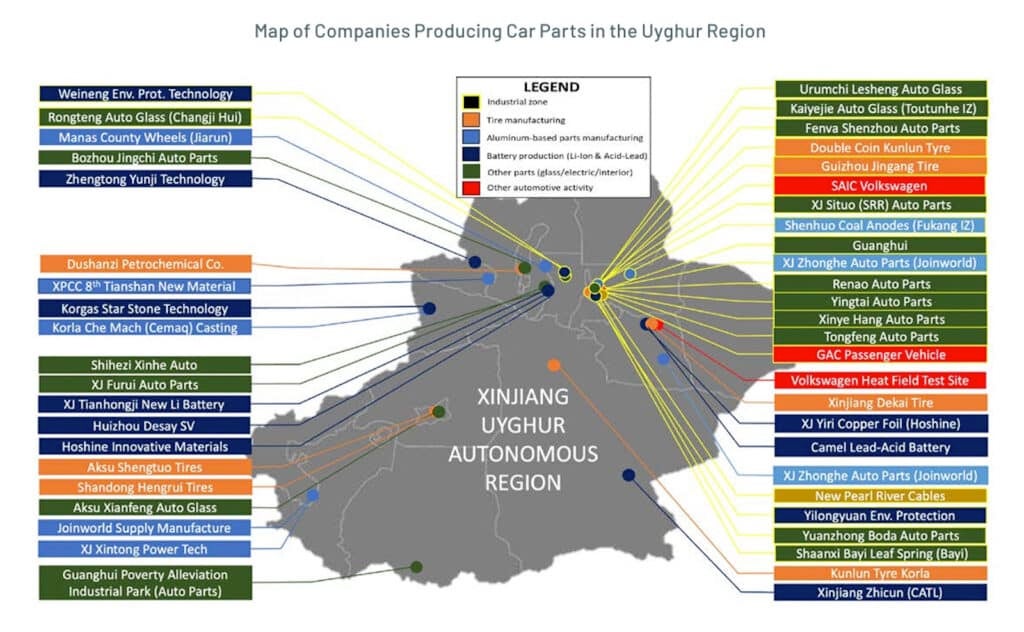If you have bought a car in the last five years, some of its parts were likely made by Uyghurs and others forced to work in China.

This news and other information on potential or documented abuses were revealed in a new report from the Helena Kennedy Centre for International Justice in Sheffield, England.
The report said the government of the Peoples Republic of China “has deliberately shifted raw materials mining and processing and auto parts manufacturing into the Xinjiang Uyghur Autonomous Region in western China, essentially making international supply chains captive to repressive programs and systematic forced labor.”
Uyghurs are an ethnically and religiously distinct minority population, living western China. The Uyghurs, who are predominantly Muslim, have been persecuted in recent years and their treatment has been condemned by human rights groups in the past.
The Chinese government previously said the actions they have taken in Xinjiang are aimed at preventing terrorism, and in answer to criticism from the United States, have noted the U.S. has a long, deplorable record of ignoring the rights of minorities.
The United Auto Workers said the report shows the auto industry must do more to ensure its supply chains are free of forced labor.
“Forced labor and other human rights abuses are unacceptable in the modern global economy,” the UAW said in a statement. “The time is now for the auto industry to establish high-road supply chain models outside the Uyghur Region that protect labor and human rights and the environment. This includes significant re-investments in good union jobs in the U.S.”
Report says auto industry tied to repression in Xianjiang

The new report on human rights abuses in the Chinese auto industry in which global manufacturers are heavily invested, said the mistreatment stems from combination of weak enforcement of laws aimed at curbing forced labor and the government’s blind eye to environmental standards in China, paired with “convoluted supply chains has left the automotive industry reliant on abusive suppliers.”
Every major car company, including Volkswagen, BMW, Honda, Ford, GM, Mercedes-Benz, Toyota, Stellantis — including Fiat, Chrysler, Dodge and Jeep, Tesla and NIO — is at high risk of sourcing from companies linked to abuses in the Uyghur region.
The report also included an appendix with a long list of specific suppliers responsible for the abuses.
Some are sourcing electronics from firms employing trafficked Uyghurs in factories in other parts of China, according to the Helena Kennedy center.
Some are unwittingly sourcing metals from the Uyghur region, because metal trading companies own equity in Xinjiang smelters, the report said.
Suppliers make wide array of parts with Uyghur labor
“Some of the greatest exposure comes from the steel and aluminum used to make car frames, axles, bodies, engine casings, wheels and brakes.

The world’s largest steel and aluminum producers have shifted into the Uyghur Region under Chinese government subsidies and incentives.
But suppliers of tires, interiors, windshields, batteries and practically every other major part are also implicated.
A substantial majority of the vehicles made in China are sold to Chinese customers. But during a recent conference sponsored by Automotive Futures in Ann Arbor, Michigan noted China, as a nation, has become the world’s second-largest exporter of vehicles, speakers noted during the conference.
Tesla, which operates a major factory in Shanghai, is now one the largest exporters of finished vehicles from China. Tesla’s Shanghai plant even exports electric vehicles to Europe where they are in great demand. Tesla CEO Elon Musk has said the Shanghai plant depends on Chinese suppliers for everything, including batteries.
Helena Kennedy is a leading center for research for social justice and human rights. It provides a vibrant environment at the cutting edge of legal and criminal justice practice which prepares students for excellence in their chosen professional career.
The team from the Helena Kennedy spent six months investigating and reviewing publicly available documents, which “revealed massive and expanding links between western car brands and Uyghur abuses” in everything from the hood decals and car frames to engine casings, interiors and electronics.
- SEO Powered Content & PR Distribution. Get Amplified Today.
- Platoblockchain. Web3 Metaverse Intelligence. Knowledge Amplified. Access Here.
- Source: https://www.thedetroitbureau.com/2022/12/report-highlights-automakers-abuses-uyghurs-in-china/



